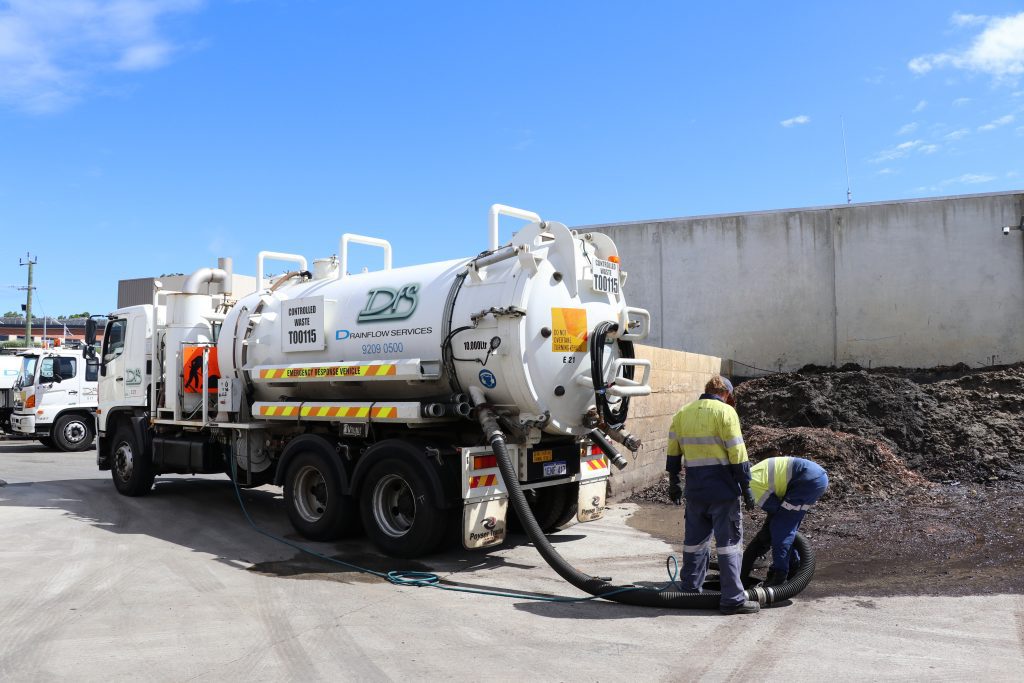About Reclaim Waste
About Reclaim Waste
Blog Article
Fascination About Reclaim Waste
Table of ContentsReclaim Waste Things To Know Before You Get ThisThe Buzz on Reclaim WasteLittle Known Questions About Reclaim Waste.Fascination About Reclaim WasteThe Greatest Guide To Reclaim Waste
Discover the kinds, events, and forms of fluid waste. Residential sewer waste refers to the waste and products from a property sewage-disposal tank. This sort of waste is created by human beings in homes, colleges, and other buildings. This only includes septic tanks that have a drain field. The proper administration and disposal of domestic sewage waste need liquid waste to be transferred to a sewage treatment plant where the correct methods and devices are related to purify and dispose of waste.
Business waste frequently includes possible threats, such as combustible products or a mix of liquid and strong waste products, and calls for an advanced and detailed disposal procedure. The disposal of business waste normally includes the filtering of waste prior to transport to guarantee safe and correct disposal. Hazardous waste is developed from byproducts and drainage of industrial procedures and production.
This sort of waste can not make use of the exact same sewage management transport or processes as septic or business fluids. The hazardous waste management process needs the inspection and screening of liquid waste prior to it goes through the disposal procedure (industrial wastewater treatment). Overflow waste is the liquid waste that originates from drainage and excess stormwater in highly booming locations or cities
Drainage waste can trigger contamination and flooding if not handled correctly. Find out more regarding sewer cleaning and waste administration. Guaranteeing proper waste administration can avoid catastrophes and lower ecological injury. Both people in domestic settings and specialists in industrial or production sectors can take advantage of understanding the procedures and regulations of liquid waste management.
Getting My Reclaim Waste To Work
Contact PROS Solutions today to learn more about our waste administration and disposal services and the appropriate methods to look after the fluid waste you create.
(https://www.goodreads.com/user/show/183557660-leon-aube)This supposed 'wastewater' is not only a crucial resource however, after treatment, will certainly be launched to our land, rivers or the sea. Made use of water from bathrooms, showers, baths, kitchen sinks, washings and commercial processes is understood as wastewater.

water made use of to cool down equipment or clean plant and devices). Stormwater, a kind of wastewater, is runoff that streams from farming and metropolitan locations such as roofings, parks, gardens, roads, courses and rain gutters right into stormwater drains pipes, after rainfall. Stormwater streams unattended straight to neighborhood creeks or rivers, ultimately reaching the sea.
What Does Reclaim Waste Do?
In Queensland, most wastewater is treated at sewer therapy plants. Wastewater is carried from residential or commercial websites with a system of drains and pump terminals, recognized as sewerage reticulation, to a sewage therapy plant.
The Division of Natural Resources suggests local federal governments regarding managing, operating and keeping sewage systems and treatment plants. In unsewered areas, city governments might require householders to install specific or household sewer treatment systems to deal with domestic wastewater from bathrooms, kitchens, washrooms and laundries. The Department of Natural Resources authorizes using family systems when they are shown to be reliable.
Many stormwater receives no treatment. In some new class, therapy of some stormwater to get rid of litter, sand and crushed rock has actually begun making use of gross toxin catches. Wastewater treatment happens in 4 stages: Gets rid of solid matter. Bigger solids, such as plastics and other objects wrongly discharged to sewers, are gotten rid of when wastewater is travelled through screens.
Wastewater after that streams into huge storage tanks where solids settle and are removed as sludge. Grease and residue are skimmed from the surface. Uses small living organisms called micro-organisms to damage down and get rid of continuing to be liquified wastes and great particles. Micro-organisms and wastes are included in the sludge. Eliminates nitrogen and phosphorus nutrients that might trigger algal flowers in our rivers and endanger water life.
The Reclaim Waste Diaries
Nutrient removal is not offered at all sewer treatment plants due to the fact that it needs pricey specialist tools. Clear fluid effluent created after therapy may still have disease-causing micro-organisms - liquid waste removal.

A lot of wastewater streams into the sewage system. Under the Act, neighborhood governments provide authorizations and licences for ecologically relevant tasks (ERAs) entailing wastewater launches that may have a regional impact.
Fascination About Reclaim Waste
Or else, examples are considered research laboratory evaluation. Commonly lots of examinations are required to establish the levels see post of each of the various toxins such as oils, hefty steels and chemicals in water. Tracking offers factual info about water high quality and can confirm that permit conditions are being satisfied. The information acquired with surveillance provides the basis for making water high quality choices.
Report this page